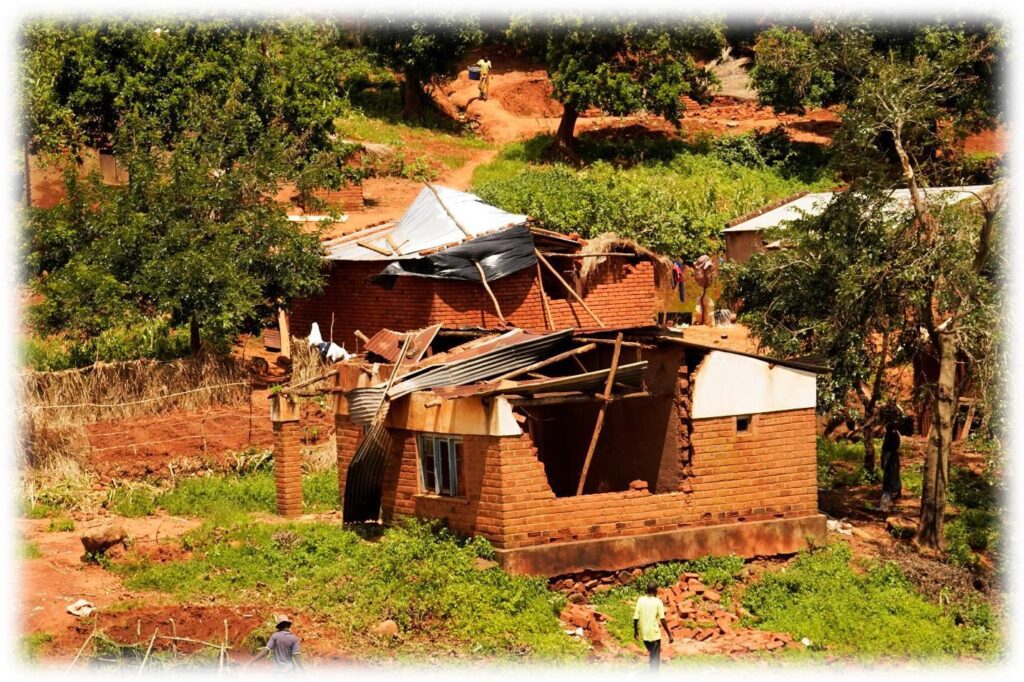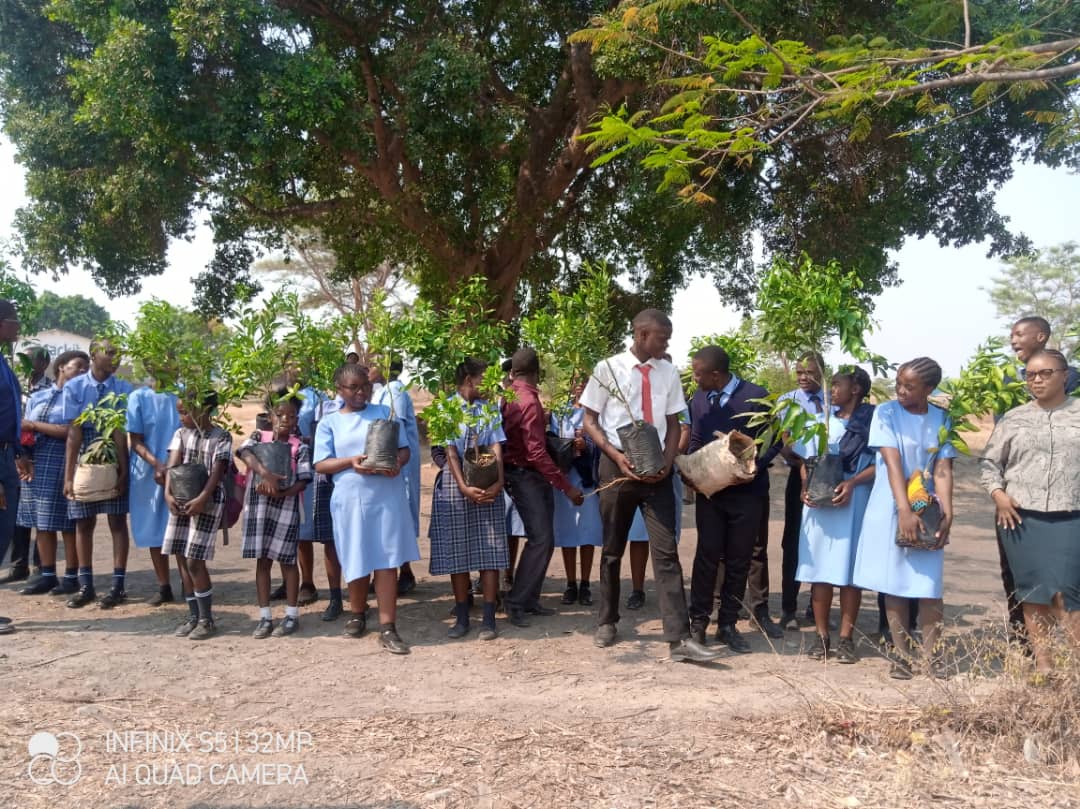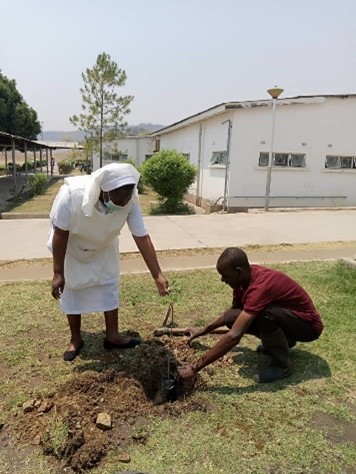
Cyclone Freddy which hit Malawi between 12th and 14th March has been described by President Chakwera as ‘more devastating than any other disaster Malawi has ever experienced’. (Quoted in Flash Update No 8, 23rd March). More than 14 districts were severely affected by strong winds, heavy rains, floods and mudslides.
Thyolo District, including Konzalendo, was affected and many of its residents are among the 563,602 internally displaced people in the country. The death toll has now reached 511 and more than 500 are still missing.
In Konzalendo and within the borders of the parish we have heard of only 4 deaths related to the storm. However, there were many whose houses, kitchens and bathrooms/toilets were destroyed. (Kitchens and bathrooms/toilets are normally built apart from the house). The strong winds and rain affected many maize fields, destroying or damaging the crop – and it is very likely that hunger will follow as a result.
One of the people we spoke with in the area described feeling on Sunday night that ‘the end of the world had come’. Another woman, whose kitchen was destroyed, described how for three days she did not eat as it was impossible to prepare any food due to the continued heavy rain.
On Friday three women came from Merekafu, a nearby village, appealing for help. On visiting the area on Saturday, we saw many damaged houses, kitchens, bathrooms. One house of an elderly couple was completely destroyed, and a huge gully opened adjacent to the house. A young child fell into the gully and injured his head – he is still in intensive care in hospital. Another elderly couple is very badly off as their bedroom wall collapsed and the remaining walls buckled. They are now sleeping in their kitchen, which surprisingly survived. A young single mother was sleeping in her small thatched house with her seven-year-old and 15-month-old baby when the whole house collapsed. On Monday we visited Mitembo and saw the damage to the Primary School and many houses in the village.
In Konzalendo 38 people are still camping in the local primary school as their houses were badly damaged. We spent time with them on Thursday and visited their damaged houses which are very close to the parish church. 59 people had taken shelter in the local Anglican church but the number there has now dropped to 10, as some returned to their homes.
The resilience of the people in the face of this disaster, their ability to pick up the pieces and begin again is remarkable. Many returned to their houses and patched them as best they could. Government has reached out with foodstuff and emergency items, damaged roads and bridges are being repaired, power has been restored in many areas. Yet the number of those affected means there will be need for ongoing relief efforts. Of paramount importance will be the development of strategies that will mitigate the harm that the projected future severe weather events will cause.
We have not been able to ascertain yet how many people are still in camps but have received the following figures: Mwabvi – 49; Chikungwa – 161; Minguni – 204; Konzalendo – 38; Katuli – 10.







